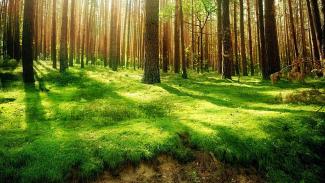
Brilliant in-depth look into our natural world. Featuring top news sources, organisations, campaigns, and events regarding all key issues affecting our environment. Analysis and key background information on the climate crisis, sustainability, forests, oceans, animals, the energy sector, and the food and farming industry.
The natural world encompasses the planets flora and fauna, vast oceans, rivers, and lakes, mountains, forests, and everything in between. Our Earth provides us with everything we need to survive – the oxygen we breathe, the materials to build, and the food we need to eat. Current rates of natural resource exploitation mean that humans are using the equivalent of 1.6 Earths.
This incredible guide to the environment offers over 30,000 curated links to reliable, scientific, and fact-based resources. You will discover top news portals for the latest developments and analysis on environmental issues. Search organisations by country, or international efforts such as Greenpeace. We celebrate the heroes of the environmental world in our exemplary people section, which features activists, environmentalists, and organisations who dedicate their lives to the protection of our planet.
Raising further awareness of the need for environmental preservation, environmental prizes such as the Earthshot Prize incentivise change, and award grants to fund excellent projects. Additionally, documentaries and films highlight the essential work needed to prevent further destruction and exploitation.
Earth Day, World Environment Day, IPCC reports, and global demonstrations, raise further awareness, and put pressure on leaders to employ laws and regulations which protect Earth rights.
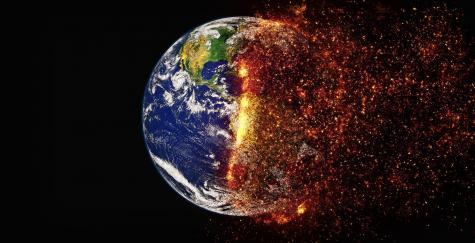
The time for climate action is now!
Despite recent climate talks, world leaders remain slow to adopt and enforce climate targets. As the worlds developing countries suffer the worst consequences of climate change, wealthy nations fail to meet climate financial goals. Coal producing countries haven't committed to a phase out, fossil fuels remain subsided and massively over invested, and climate deniers continue to contest proven science.
Discover a huge resource for reliable climate news, and access to top climate experts. Find the NGOs, youth groups, scientists, universities, and activists fighting to secure our future. With special categories on the commendable work of Extinction Rebellion, and Greta Thunberg's climate strike movement Fridays for Future.
Uncover the eye-opening discoveries revealed in the IPCC and UNEP climate reports over the years, along with analysis and explainers. We guide you through all the UN COP Conferences including information on climate targets and progress.
Learn about the many causes of climate change, including the fossil fuel industry, goods manufacturing, deforestation, agriculture, and much more. Then follow the journey into the devastating consequences, including deadly heatwaves, drought and the resulting hunger crises, wildfires, rising sea levels, extreme weather events, conflict, climate refugees, and of course the gigantic financial costs which follow.
By 2050, it is estimated that more than 200 million people will have fled their homes due to climate change. In the same time period, if we follow on our current course, the world economy could be cut by $23 trillion!
With so many reasons to act, we investigate the solutions, and the barriers we face in their implementation. Funding renewable energy, and curtailing the fossil fuel industry solves many problems, but the influence of Big Oil hampers progress. Huge government subsidies prop up the industry, which are supported by politicians who are lining their pockets.
Divestment and strong climate policies are needed – developed countries must be held accountable, and those who do not meet emissions targets must pay.
Nature-based solutions such as reforestation can be transformative, and carbon capture initiatives will be critical in ensuring that our planet is preserved for future generations.
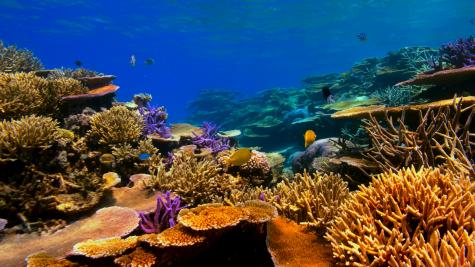
Vital for all Earths systems, nature is our very own free water dispenser, pollinator, provider of sustenance, climate regulator, oxygen producer, medicine bank, supply of happiness, joy, and health.
It is essential for all life on this Earth. Countries are now starting to recognise the importance of protecting it. Costa Rica for example, in 1998, was the first country to give nature legal rights, making ecocide a punishable crime.
Forests purify our air, filter our water, protect us from the worst of climate change, and provide homes for thousands of species. Yet deforestation for farm land and the logging industry accounts for approximately 10% of greenhouse gas emissions from human activities.
Biodiversity loss has resulted in 12,000 animal species now threatened with extinction. Concepts such as rewilding are gaining popularity, and forestry laws are increasingly being enforced, however, illegal activity persists.
Over the past 30 years, 15% of the Brazilian Amazon has been destroyed. This is hugely detrimental in terms of habitat loss, and it also puts Indigenous landowners, and environmental defenders at risk and in potentially deadly situations.
71% of our planet is made up of water and oceans – the lungs of the Earth. Human threats to our precious water systems have never been greater. Learn about the world's most destructive oil spills, massive dam projects, groundwater loss, pollution and the ocean plastic crisis, coral reef destruction, the intensive fishing industry, and the dangers marine life face.
With climate change intensifying the problem, we are witnessing vast losses of the polar ice caps, intensive flooding, more tsunami disasters, and even changes to global ocean circulation. Ocean protection is key, and events like the UN Ocean Conference are vital. Politicians are slowly waking up to the importance of protecting our worlds water.
You will find access to other important topics such as the human right to water, desertification, World Oceans Day, World Water Day, and water conservation, as well as the inspiring organisations working hard to foster change.
Waste and toxins on land and in water are a huge threat to the preservation of nature. Our resource encompasses all the main issues including pesticides and herbicides, and plastics and microplastics. There is also extensive information on the recycling industry (good and bad), excellent zero waste initiatives, top news sources, and organisations.
Air pollution is now responsible for 7 million deaths annually across the globe. Our transport and air pollution category investigates issues with smog, the ozone, the shipping industry, and air travel.
Various solutions to tackle the issue already exist, such as electric vehicles. Car-free cities, and green cities are also gaining traction. You will also find a wealth of information on low carbon options such as public transport, electric scooters, and bicycles.
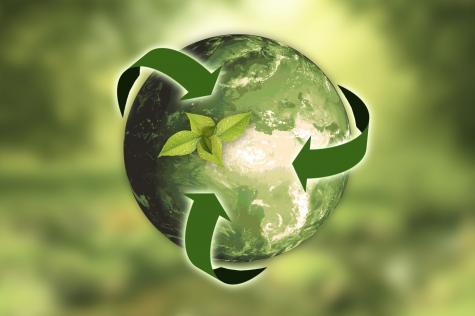
Sustainability is the societal goal whereby resources are treated as finite, and long-term environmental consequences are carefully considered.
Our excellent platform provides the broader picture on how sustainability, longevity, and environmental issues can be linked together. You will find top news sources on the topic, as well as the organisations, companies, and projects working towards a sustainable future.
Extensive information is provided on the Sustainable Development Goals adopted by UN state members back in 2015. The 17 SDGs were developed to foster a common goal embracing key concepts of peace, unity, and equality – all with climate change and environmental protection in mind.
We explore the benefits of sustainable cities, simple living, alternative lifestyles, minimalism, anti-consumerism, cooperatives, universal basic income, ethical business and investment, corporate greenwashing, and much more.
Within policy and economy, we feature many topics such as ecotax, the circular economy, green economy and growth, CSR, and ethical career options. With so many excellent initiatives, the possibilities for a sustainable future are within our grasp.
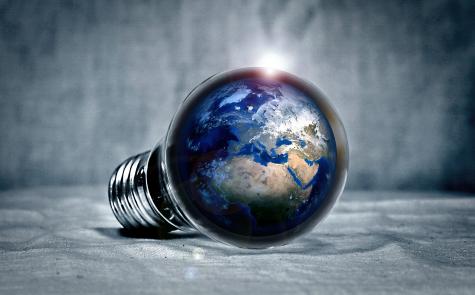
The discovery of fossil fuels as an energy source transformed our lives and our planet. We look into gigantic oil corporations, governmental subsidies, the green energy sector, and nuclear energy - with all its associated problems.
Our must-have guide to Big Oil and Gas exposes the truth behind the greenwashed advertisements by energy providers. Uncover essential information on destructive pipelines such as the Enbridge Line 3, and the East African Crude Oil pipeline. We highlight the important work of those protesting against them, including the Indigenous peoples fighting for their ancestral land rights.
Analyse the devastating environmental impacts of fracking and gas flaring, and the deadly oil spill disasters, which time and time again giant oil corporations enjoy impunity for. Find categories dedicated solely to ExxonMobil, Shell, BP, Total, and Repsol. You will learn about their past scandals, and the bloated subsides and investments which keep pouring in regardless. Also, the potential windfall taxes which could be placed upon these companies' gigantic profits in the coming months.
Despite its known eco-nightmare and carcinogenic properties, Big Coal still provides 36% of the world's electricity. Discover the divestment campaigns desperately fighting to stop this industry, and in-depth analysis on the biggest coal sites in the world.
Wealthy mining companies left unhindered plunder local resources. Profits are maximised by these mining giants, then when the pits run dry, mines are abandoned. Communities are left with permanently scarred landscapes, polluted air and contaminated water supplies, massive habitat destruction, and deadly health implications for decades to come. We also feature special sections on uranium, gold, and rare earth element mining.
Nuclear energy is not the answer to our green energy needs, yet countries continue to invest heavily in the industry. Once hailed as the solution, it is now overly expensive, dangerous, and leaves future generations with the unsolved dilemma of radioactive waste storage. Learn about the world's most deadly and destructive nuclear disasters such as Chernobyl and Fukushima.
Search by country, and find extensive nuclear energy information for each region, including comprehensive analysis into the risks and costs of this industry – economic, environmental, and human. Discover the many excellent initiatives who say no to nuclear, and warn us of the risks of nuclear proliferation, the health implications, and the very real potential for a powerplant meltdown.
Renewable energies, supported by increased funding and developments in technology, have created an industry which in 2030 will be worth $1,977.6 billion. This energy is not only safe, but it is clean, and does not contribute to the worsening of climate change.
Explore our individual categories which look into all aspects of wind, solar, and hydro energy production. You will find information on costs, projects, efficiency, energy storage, and which countries are emerging as the pioneers for green energy production.
Although some renewable energy sources are sustainable, others, such as biofuel, are not. Around 20% of the world's energy is supplied by renewable sources, 8% still from biofuels.
Much work still needs to be done to increase the renewable and sustainable percentage, governmental support and funding of the green energy transition is lacking. Weak carbon emission targets put minimal pressure on industry to make the switch.
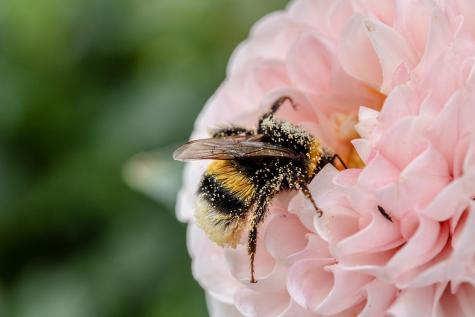
Animals are sentient beings who play vital roles in many of our planet's ecosystems, unfortunately, they often suffer at the hands of human greed.
Delve into our incredible guide to the world of mammals, invertebrates, birds, reptiles, and amphibians. You will find an extensive collection of inspiring organisations who give a voice to the voiceless in their fight for animal rights.
Animals face countless issues in today's society. We look into the profit driven industry of Big Meat and the factory farms used to maximise gains. Find documentaries and organisations which expose the truth. As well as extensive information on the cruel live export business, the use of hormones and anti-biotics in livestock, meat factories, and the huge environmental impact of meat contributing massively to the climate crisis.
The popularity of vegetarian and vegan diets has grown so much, that between 2014 and 2019 there was a 400% growth rate of non-meat eaters in the UK alone. Consumers are changing their eating habits on both moral and environmental grounds. It was recently discovered that the meat and dairy industry accounts for 14.5% of man-made emissions. The ever-expanding market of plant-based products and substitutes is giving people even more reason to lower their consumption of animal products.
Regarding animals in the wild – human activity is also having catastrophic consequences for at risk animal species. 99% of endangered species that exist today, have become so due to poaching, habitat destruction, and climate change. Some degree of natural extinction is normal; however, estimates suggest that humans have accelerated the rate between 1,000 – 10,000 times.
The Earth is undergoing a biodiversity crisis. Over 12,000 species are currently threatened with extinction. One million if you include plant species. A third of the world's coral reefs are already lost.
The continued decline of bees and other pollinators will set us on course for a global food crisis as crops are no longer able to thrive. The combined effects of intensive farming, monocultures, use of agrochemicals and pesticides, global warming, and pollution, have created an uninhabitable environment for these creatures that we depend upon to support human life.
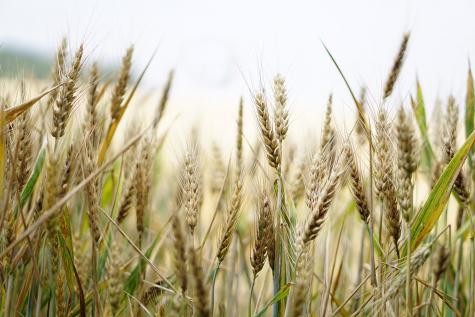
Over time, humans have become totally dissociated between the food on their plate and where it came from. Food which ingeniously brings its own natural protective layer, such bananas, oranges, or corn, are being needlessly wrapped in plastic! The growth of the fast-food industry, and the popularity of processed food, has led us to lose our connection with food in its raw form.
It is common place to see plastic containers of pears which were grown in Argentina, packed in Thailand, then shipped to Europe. The food supply chain is broken. The production of one beef burger alone is the equivalent of driving a car almost 8 miles!
Our comprehensive guide to food and agriculture covers all issues related to our modern-day food industry, and also issues within rural agriculture in the developing world. You will find a wealth of information on organisations, news portals, organic farming, permaculture, urban farming, soil, palm oil, the environmental impact of meat, and much more.
We investigate the pros and cons of GMO food production, with in-depth analysis of Monsanto and Syngenta, who infamously advocate the use of deadly pesticides and monopolise seeds.
Under rural development we expose the difficulties facing the farming industry in developing countries. You will find information on illegal land grabs, women in agriculture, property rights of seeds, and the impact of climate change. Drought and desertification as a result of our changing climate is now a key driver of conflict as diminishing land is disputed over. Villages are struggling with drought, failed crops, malnutrition, and ultimately starvation.
We highlight the importance of food sovereignty. Most current farming systems prop up the corporate food regime. The people who produce, distribute, and consume food, should control the mechanisms and economics surrounding it.
.
We fight for a world where the global climate crisis can be slowed by sticking to emissions targets. Nature can be protected with enforced laws. Sustainability can become embedded in the lives of everyone. Renewable energy can be funded, and adopted in every part of the world. Animals can be brought back from the brink of extinction. Intensive food systems can be abated.
We can all play our part in creating a better world for future generations to come. Our environmental guide will show you how.
.
Article by Rachael Mellor
ENVIRONMENT by Rachael Mellor is licensed under CC BY-NC-ND 4.0
.
Image 1: “Nature-View” from Ayush2162002 is published under (CC BY-SA 4.0)
Image 2: “Untitled” by TheDigitalArtist is published under Pixabay License
Image 3: “Untitled” by Oleksandr Sushko is published under Unsplash License
Image 4: “Untitled” by anncapictures is published under Pixabay License
Image 5: “Untitled” by PIRO4D is published under Pixabay License
Image 6: “Untitled” by Myriams-Fotos is published under Pixabay License
Image 7: “Untitled” by kirahoffmann is published under Pixabay License